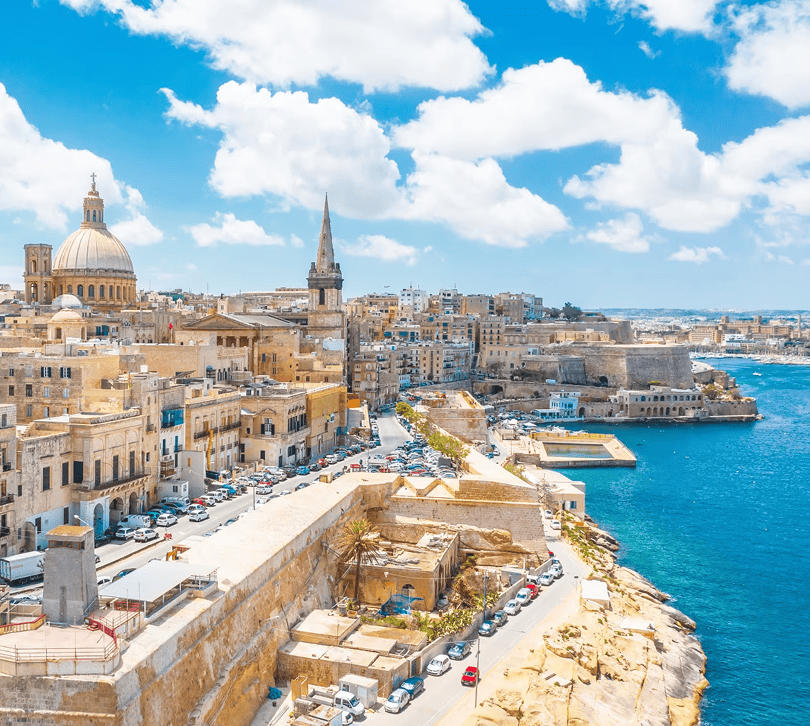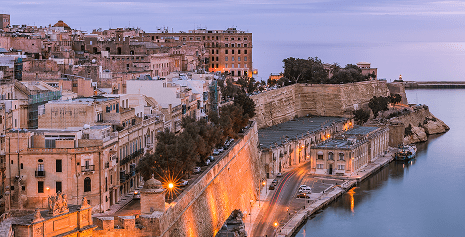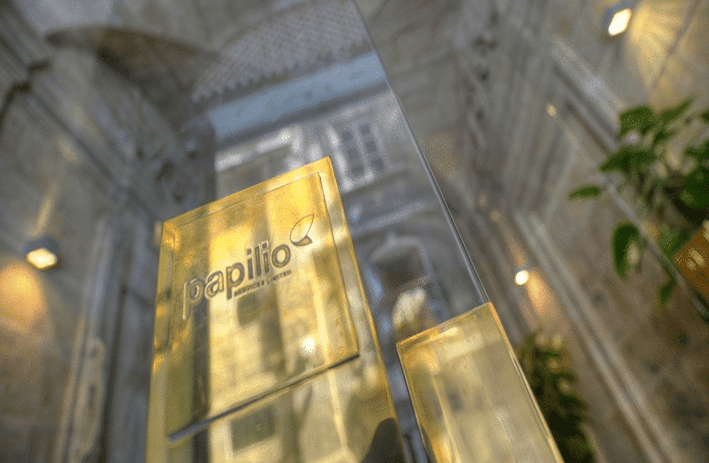The historical and cultural connections between Malta and Ireland create a solid foundation for easy transitions and mutual understanding. Both countries share a rich history of migration and trade, which fosters familiarity and trust among their citizens. This connection is further enhanced by the use of English as an official language in Malta and in Ireland. This shared language facilitates communication and business interactions between the two nations.
By building bridges between these two vibrant countries, investors can unlock a wealth of opportunities while enjoying the benefits of a welcoming and dynamic environment.
Moreover, the cultural exchange between Malta and Ireland can lead to collaborative ventures across a diverse investment landscape that spans sectors such as financial services, technology, and healthcare, offering numerous opportunities for investors to diversify their portfolios and expand their business operations. As both countries continue to enhance their relationship, the potential for joint initiatives and partnerships grows, paving the way for a prosperous future.
Historical and Cultural Context between Malta and Ireland
Malta and Ireland share several historical and cultural ties that create a foundation for potential synergies:
- Historical Background: Both nations have a history of British influence, which has shaped their ‘common law’ legal systems, languages, and educational structures. This shared past creates common ground in governance and legal frameworks, potentially easing the transition for foreign individuals and businesses looking to establish themselves in Malta and/or Ireland.
- Language: English is an official language in both Malta (alongside Maltese) and Ireland (alongside Irish), facilitating seamless communication and cultural exchange. This linguistic commonality is particularly advantageous for foreign entrepreneurs and investors considering Malta and/or Ireland as a destination.
- Cultural Background: The strong Roman Catholic traditions in both countries influence cultural practices, holidays, and societal values, fostering a sense of cultural affinity and mutual understanding.
- EU Membership: Both Malta and Ireland are members of the European Union, which enhances economic cooperation and facilitates the free movement of goods, services, capital, and people between the two nations.
Key Sectors for Investment in Malta
- Financial Services and Insurance: Malta’s robust financial sector, supported by a favourable regulatory environment and skilled workforce, presents opportunities for foreign financial services companies and investors. Ireland also provides many opportunities for such foreign companies and investors with its strong financial services industry.
- Tourism and Real Estate: With tourism accounting for approximately 20% of Malta’s GDP, there are significant opportunities in hospitality and real estate development. The relatively affordable property prices offer attractive prospects for both residential and commercial investments. As tourism accounts for approximately 18% of Ireland’s GDP, the country also offers opportunities in the hospitality sector. Specific investment vehicles that are available for investment in Irish real estate by foreign investors make such investments very tax-efficient.
- Manufacturing and Technology: Malta’s manufacturing sector, particularly in electronics, pharmaceuticals, and communications, contributes about 17% to the GDP. The country is also emerging as a hub for technology-driven industries, including iGaming, FinTech, and blockchain, which could be of interest to foreign tech entrepreneurs. Manufacturing is a significant success story for Ireland, with an emphasis on pharmaceuticals, medical devices, engineering, food and drink, agricultural products and information technology.
- Healthcare and Medical Tourism: The Maltese government’s promotion of public-private partnerships in healthcare presents opportunities for foreign investors in the medical sector.
- Maritime and Aviation: Malta’s maritime and aviation industries are thriving pillars of its economy. The island is a leading EU ship registry hub, excelling in yachting and transhipment through its world-class Freeport. In aviation, Malta’s robust regulatory framework and Aircraft Registration Act have attracted international operators, with growing sectors in aircraft leasing, financing, maintenance, repair, and overhaul services. Strategic location, skilled workforce, and business-friendly policies ensure these sectors continue to flourish.
Investment Incentives and Programs
Malta and Ireland offer several investment programs and incentives that could be particularly appealing to foreign investors:
- Tax Credits and Incentives: Malta offers various tax credits and incentives for businesses, particularly in high-value-added sectors such as manufacturing, pharmaceuticals, and R&D. These include investment aid tax credits, cash grants, and subsidies on interest rates for loans. Ireland’s RD& tax credit regime is offering a 30% tax credit that may be taken by way of cash payments, as well as a 10% tax rate on profits earned by exploiting the fruits of the R&D activity (knowledge development box).
- Seed Investment Scheme: This Maltese scheme offers tax relief to start-ups, providing a tax credit of 35% of the investment value, up to €250,000 per annum. This could be particularly beneficial for entrepreneurs looking to establish new ventures in Malta.
Ireland’s Employment Investment Incentive Scheme (EIIS) provide income tax relief at rates of 20% to 50% for investors in start-up, early-stage and expansion-stage businesses. The businesses may raise up to €5.5m per annum, subject to a €16.5m overall cap. An individual EIIS investor may make an EIIS investment of up to €1m in any tax year and gain tax relief.
- Start-Up Residence Programme: Part of the Start in Malta initiative, the Malta Startup Residence Programme (SRP) is open to startup founders, co-founders, core employees and family members (i.e. spouse, de-facto partner, minor children and dependent adult children) of startup founders, co-founders and core employees.
Ireland has a Start-Up Entrepreneur Programme (STEP), available to non-EEA innovative entrepreneurs and their families to establish their businesses and reside in Ireland on a full-time basis.
- Malta’s General Business Development Incentives such as:
- Accelerate 2024 Incentive Programme which supports eligible undertakings participating in recognised accelerator programmes in Malta, and offers grants of up to €100,000, a de minimis cap of €300,000 over three years, and targets ventures registered in the European Economic Area operating for less than seven years;
- Invest Scheme which supports initial investments, provides investment aid in the form of tax credits, cash grants, and loan subsidies, aid intensities vary from 10% to 35% depending on the project and location and it’s aimed at enterprises carrying out qualifying activities such as manufacturing and R&D;
- Business Development Grant which supports business expansion and modernisation and offers financial assistance for various business development projects;
- Smart and Sustainable Investments Grant focused on technological innovation and sustainability and providing support.
The aforementioned incentives are amongst many others and showcase the wide range of incentives and programs offered in Malta, demonstrating the commitment to fostering economic growth, innovation, and sustainability across various sectors. These incentives are designed to attract both local and foreign investment, support business development at all stages, and enhance Malta’s competitiveness in key industries.
It’s important to note that the specific details, eligibility criteria, and application processes for each incentive may vary.
Similarly in Ireland, a broad range of business development incentives are offered by Enterprise Ireland, the State agency responsible for supporting Irish businesses in the manufacturing and internationally traded services sectors. These include a variety of grants for feasibility studies, scaling, and developing new local and export markets, as well as grants and funding aimed at supporting High Potential Start-Ups and ‘green agenda’ projects. Lower-cost financing is available to eligible businesses from a number of sources, including the Future Growth Loan Scheme as well as the Strategic Banking Corporation of Ireland.
Residency Programmes
- Malta Global Residence Programme (GRP): Designed for non-EU/EEA/Swiss nationals, this program offers a favourable tax regime, including a flat 15% tax rate on foreign income remitted to Malta and visa-free access to the Schengen Area.
- The Residence Programme (TRP): Aimed at EU/EEA/Swiss nationals, this program offers similar benefits to the GRP, including a 15% tax rate on foreign income remitted to Malta and no tax on income not brought into Malta.
- Malta Highly Qualified Persons Rules (HQPR), a programme introduced in 2011 that seeks to attract highly qualified persons in the financial, gaming and aviation sectors by offering a 15% flat rate of tax on any income generated in Malta.
Ireland has a Special Assignee Relief Programme (SARP), which is available to higher-earning executives employed abroad and sent to Ireland by their employer. The relief operates to exempt 30% of earnings over €100,000 from income tax, up to a limit of €1m.
- The Malta Digital Nomad Visa or the Nomad Residence Permit enables non-EU/EEA/Swiss nationals (also referred to as third-country nationals or TCNs) to retain their current employment based in another country, whilst legally residing in Malta. The permit applies to a person who can work remotely and independently of location, using telecommunication technologies.
Ireland has a similar programme, called a Van der Elst visa, which is available to non-EU/EEA nationals employed in another EU member state and working in Ireland on a temporary basis, for up to a maximum of 12 months.
- The Malta Key Employee Initiative (KEI) offers a faster route to the single permit (for work and residence) application procedure for highly skilled non-EU/EEA/Swiss nationals (also referred to as third-country nationals or TCNs).
- The Malta Specialist Employee Initiative (SEI) offers a faster route to the single permit (for work and residence) application procedure for non-EU/EEA/Swiss nationals (also referred to as third-country nationals or TCNs) holding relevant academic, vocational or technical skills (but do not qualify under the Key Employee Initiative (KEI)).
- The Irish Critical Skills Employment Permit is available to non-EU/EEA skilled workers in professions where there is a skills shortage in Ireland. The list of sectors where such skills shortages arise is dynamic and currently includes workers in information technology, science, engineering, health, education, business and construction.
Retirement Programmes
- The Malta Retirement Programme (MRP) offers special tax status to all nationals. The programme gives a 15% flat tax rate on any foreign pension income received in Malta. In 2020, this tax residence programme was opened to non-EU nationals as well as EU citizens.
- The United Nations Pensions Programme (UNPP) was introduced on June 5, 2015, as a perfect addition to several special Malta tax residence programmes offered to applicants. This programme is available to all non-Maltese beneficiaries receiving a pension from the United Nations Joint Staff Pension Fund.
Malta’s Tax System
Malta’s tax system offers several advantages that could be particularly appealing to foreign entrepreneurs and high-net-worth individuals:
- Non-Dom Remittance Basis: Malta operates a non-domicile tax system where foreign income is only taxed if it is remitted to Malta. This can be particularly beneficial for high-net-worth individuals who have income sources outside of Malta.
- No Wealth or Estate Taxes: Malta does not impose wealth taxes, estate taxes, or inheritance taxes, which can be a significant advantage for high-net-worth individuals looking to preserve their wealth.
- Corporate Tax Refund System: While Malta has a standard corporate tax rate of 35%, through a tax refund system, the effective tax rate can be significantly reduced. Non-domiciled shareholders can benefit from a tax refund of up to 6/7ths of the tax paid, effectively reducing the tax rate to as low as 5%.
- Participation Exemption: Malta offers a participation exemption regime, which exempts 100% of the tax on dividends and capital gains from a participating holding. This is particularly beneficial for holding companies.
- Double Taxation Treaties: Malta has an extensive network of double taxation treaties with over 80 countries, which helps in avoiding double taxation on income and gains.
Comparison with Ireland’s Tax System
When comparing Malta’s tax system to Ireland’s, several key differences emerge:
- Remittance Basis: Both Malta and Ireland offer a remittance basis of taxation for non-domiciled residents (non-doms). However, Malta imposes a minimum annual tax charge of €5,000 for ordinarily resident non-doms when certain non-Maltese income thresholds are met (€35,000 or more)Ireland has no equivalent minimum tax charge for non-doms.
- Capital Gains Tax: Malta does not tax foreign capital gains, whether remitted or not, while Ireland taxes the foreign capital gains of non-doms only if they are remitted into Ireland. This makes Malta slightly more favourable in terms of capital gains taxation (CGT). However, a new angel investor CGT relief will soon be introduced that can reduce the effective rate of CGT from 33% to 16%.
Ireland does not impose any wealth taxes. Inheritance tax (known as capital acquisitions tax – CAT) may apply to in-scope beneficiaries in receipt of gifts or inheritances. The test of territoriality for this charge is residence-based, however, this potential exposure to CAT can be managed in the early years of a non-domiciled individual taking up tax residency in Ireland.
- Corporate Tax Rate: Ireland is known for its low corporate tax rate of 12.5%, which has attracted many multinational corporations. A lower 10% rate of corporation tax applies to profits earned from exploiting the results of Irish-based R&D activities. Malta, on the other hand, offers a competitive tax environment with a flat rate for certain programs and a refund system that can effectively reduce the corporate tax rate. For trading companies in Malta, there is a potential entitlement to a refund of 6/7ths, which can lower the effective tax rate to just 5% instead of the standard 35%. If a company’s income is more passive, such as from interest and royalties, it can result in an effective tax rate of 10%.
- Participation Exemption: Malta has established a participation exemption regime that provides a full exemption from taxation on both dividends and capital gains associated with participating holdings. Similarly, Ireland offers a participation exemption regime, which exempts 100% of the capital gains on disposal of a relevant holding. As of 1 January 2025, Ireland will also offer a participation exemption regime in respect of dividends.
- Double Taxation Treaties: Malta has double taxation agreements with more than 80 countries worldwide, including South Africa, the United States, Germany, and the United Kingdom. Due to Malta’s EU membership, companies operating in Malta are eligible to benefit from the European Union Tax Directives, such as the Parent-Subsidiary Directive and the Interest & Royalties Directive. The European Union Tax Directives aim to eliminate double taxation on profit distributions between associated companies in the various EU Member States.
Ireland currently has a network of 78 DTT treaties, of which 74 are in effect. In addition, where a double taxation treaty/relief is not available, Ireland provides unilateral relief from double taxation for a number of specific income types, including foreign branch profits and foreign interest and royalties.
Business Environment and Ease of Operation
Malta offers a business-friendly environment that could be attractive to entrepreneurs:
- Strategic Location: Malta’s location in the Mediterranean provides access to markets in Southern Europe and North Africa, complemented by modern infrastructure and a flexible workforce. Ireland’s location at the edge of Western Europe provides access to all of Europe and the US, and provides a bridge between the 2 continents. Post Brexit, we have seen many international businesses, and UK businesses, choose Malta and/or Ireland as a location for holding companies and/or operating activities due to its unique location and attractiveness.
- Skilled Workforce: Malta boasts a highly skilled and multilingual workforce, with English being one of the official languages. This linguistic proficiency, combined with a strong educational system, makes the Maltese workforce an asset for businesses. Ireland is recognised for its skilled workforce and often ranks well in international comparisons regarding the percentage of the workforce with third-level education.
- Regulatory Environment: Malta is considered one of the least complex jurisdictions for doing business, thanks to its stable regulatory environment and straightforward reporting processes.
- EU Membership: As EU members, Malta and Ireland ensure compliance with high EU standards, providing businesses with a familiar and rigorous legal framework.
Malta presents a compelling proposition for foreign entrepreneurs, family offices, and high-net-worth individuals seeking investment and residency opportunities. The country offers a unique combination of favourable tax regimes, attractive residency programs, and a business-friendly environment. Its strategic location, coupled with EU membership, provides access to diverse markets while maintaining a familiar regulatory framework.
How Can We Assist You?
Establishing a business in Malta presents foreign entrepreneurs with numerous advantages, particularly a favourable tax system. At Papilio Services, we have extensive experience in assisting a variety of companies with their Malta company formation and registration requirements. We will ensure all your documents are properly arranged for registration and provide business support services, and services related to Malta trusts and foundations, branch establishment or company re-domiciliation. Our assistance covers the entire registration process and continues throughout the lifespan of your business.
Whether you are considering relocating to Malta for personal or professional reasons, there are several residence programmes available. Our expert team is here to help you make the best choices tailored to your needs. We provide high-quality guidance and advice throughout the journey, and as Accredited Agents through Identity Malta, you can be confident that our qualified advisors will support you every step of the way.
It’s important to note that it’s crucial to consult with legal and professional experts who specialise in Maltese company law, taxation, and residence to ensure compliance with regulations and to capitalise on available opportunities. With proper planning and execution, Malta can offer residency and provide an excellent foundation for expanding your business and accessing new markets within the EU and beyond.
For insightful information on corporate, compliance, and residency services in Ireland, we invite you to schedule a consultation. During this meeting, we will engage our partners in Ireland to provide you with comprehensive support and guidance.
If this is of interest, reach out to us for a complimentary consultation today!
 Thomas Jacobsen |  Szabolcs Toth |
Contact us for more information















